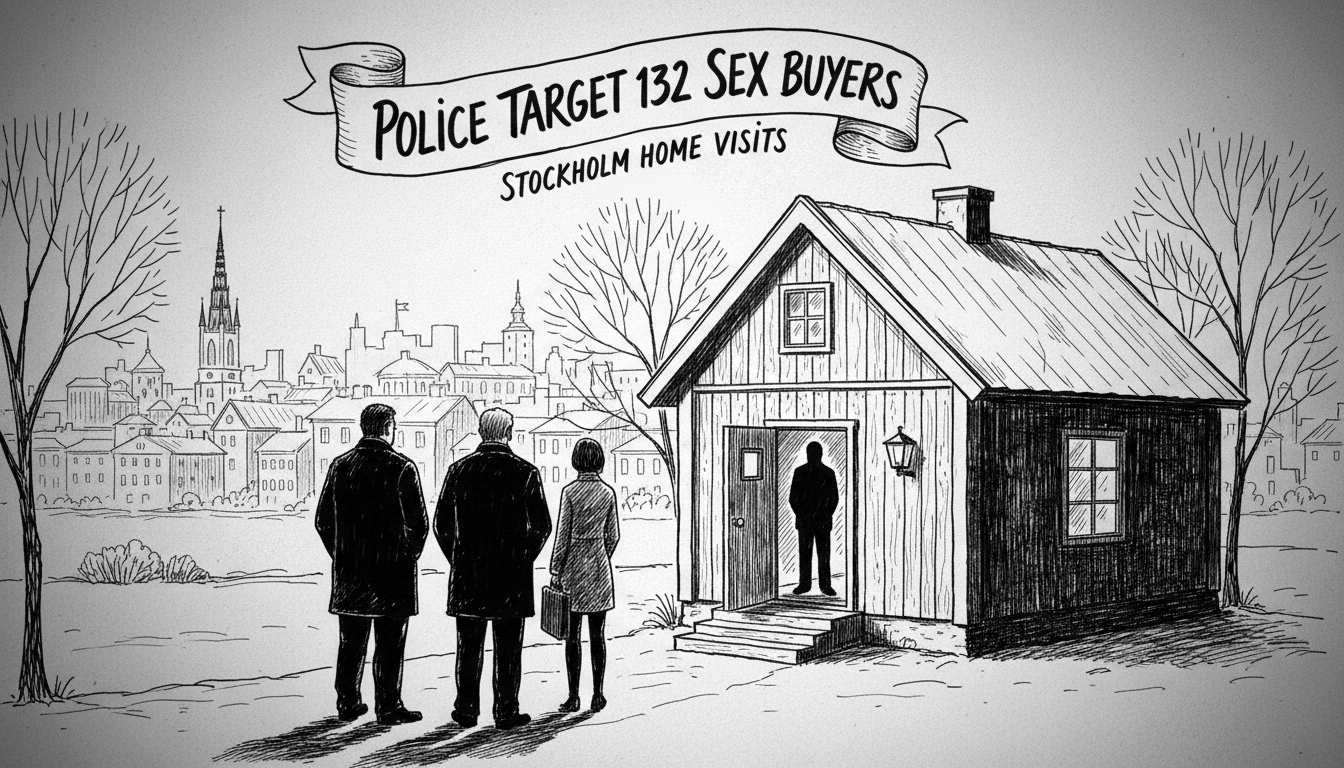Stockholm police conducted surprise home visits targeting 132 suspected sex buyers in a coordinated operation. The initiative forms part of a broader effort to combat sexual exploitation in the Swedish capital.
Officers arrived unannounced at suspects' homes to prevent evidence destruction. A police representative explained their strategy in a public statement. They said unexpected visits stop suspects from deleting digital evidence before authorities can secure it.
Social workers from Stockholm city accompanied police during these visits. They offered conversation therapy to the men identified in the operation. Although participation remains voluntary, 75 percent of visited men accepted an initial counseling session.
The police spokesperson described patterns observed among suspects. Many men reported compulsive behaviors around pornography and sex. Their daily lives reportedly revolved entirely around sexual activity from morning until night.
This behavior creates severe personal consequences according to authorities. Men experience overwhelming guilt, shame, and relationship breakdowns. Many face profound loneliness as their actions damage personal connections.
The home visits impact extends beyond the individual suspects. Families often experience severe disruption when police arrive at their door. Even without detailed explanations, the truth typically emerges within households.
Sweden's approach to sex purchase represents one of the world's strictest legal frameworks. The country criminalized buying sexual services in 1999 while decriminalizing selling. This legal model aims to reduce demand rather than punish those exploited through prostitution.
The current operation reflects Sweden's continued commitment to this policy direction. Authorities combine law enforcement with social support interventions. This dual approach addresses both legal violations and underlying behavioral issues.
Stockholm has seen increased enforcement against sex buyers in recent years. Police operations target both street-based and online solicitation. Digital evidence from phones and computers often provides crucial proof in these cases.
The high acceptance rate for counseling suggests many sex buyers recognize their problematic behavior. Voluntary participation in treatment programs may lead to better outcomes than compulsory measures alone.
This operation demonstrates how Nordic countries often blend social welfare approaches with law enforcement. The strategy aims to address root causes while maintaining legal consequences for prohibited actions.
International observers frequently study Sweden's model for combating sexual exploitation. The country's approach has influenced similar legislation in other nations seeking to reduce prostitution demand.
The home visit tactic represents an escalation in enforcement methods. By confronting suspects in their personal spaces, authorities hope to create stronger deterrent effects. The social worker accompaniment shows recognition that legal penalties alone may not solve the underlying issues driving sex purchase behavior.

